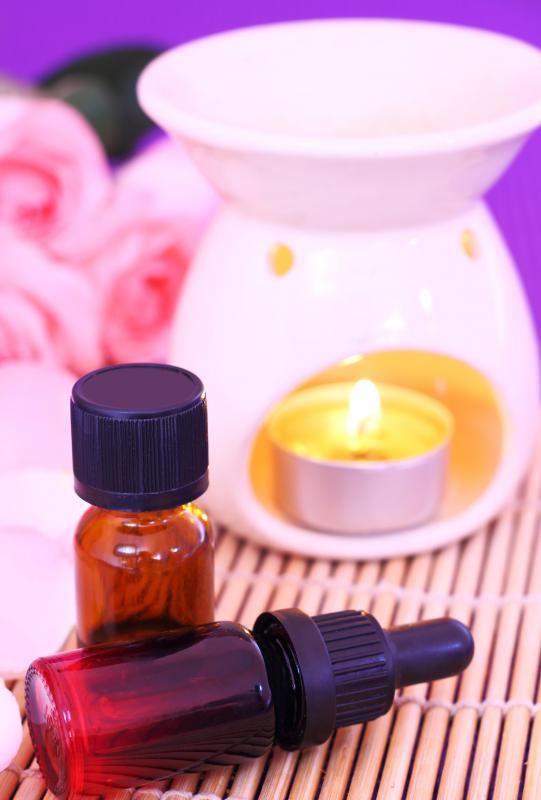At WiseGEEK, we're committed to delivering accurate, trustworthy information. Our expert-authored content is rigorously fact-checked and sourced from credible authorities. Discover how we uphold the highest standards in providing you with reliable knowledge.
Are There Any Home Remedies for Panic Attacks?
There are many home remedies for panic attacks. While not all of these remedies may work for all people, many sufferers find at least some home remedies to help minimize the severity of the attacks. Physical activity, aromatherapy, deep breathing, self-talking techniques, dietary changes and massage are just some of the home remedies for panic attacks.
Panic attacks are the main symptom of panic disorder. Panic disorder is fairly common, as about one in twenty people are said to have it in a mild to severe form. A panic disorder is characterized by attacks of anxiety which can be as short as a few minutes to as long as an hour. The sufferer feels overwhelmed by fear and anxiety and the body responds with an increase in adrenaline, shortness of breath, racing heartbeat and often an upset stomach as well. Hyperventilating and skin sensations are also common.

Massage of the neck and throat is said to help ease panic attacks as these areas are often tense during the attacks. However, it's important to be careful to massage gently on one side of the neck and throat and not both sides at once. Too aggressive massaging on both sides may cause unconsciousness if the massaging interferes with blood flow.
Dietary changes that include avoiding caffeine in beverages such as soda, tea and coffee are often said to help reduce the likelihood of a panic attack. Some people think that attacks may be caused by dietary deficiencies such as a lack of B-complex vitamins, calcium or magnesium. Be sure to discuss this with a doctor or qualified nutritionist before taking extra vitamins or minerals.

Some sufferers have noted that self-talking techniques can help reduce the severity of the attacks. For example, during an attack, the sufferers tell themselves that, yes, they are having an attack, but it will be all right. The idea that they can experience the attack, yet know they will be all right after it seems to help some panic attack sufferers feel more calm and in control.

Deep breathing can help calm down the hyperventilating, or rapid shallow breathing, that often accompanies a panic attack. Aromatherapy, in which the sufferer smells comforting aromas associated with pleasant childhood memories may also be calming. Daily exercise has been shown to help sufferers cope with the attacks better than if exercise is done only occasionally.
AS FEATURED ON:
AS FEATURED ON:
















Discussion Comments
Thanks for your posts above; it helps to me to know I'm not alone! I had my first panic attack at 60 years old after a health crisis and know that anxiety can strike, really at any age.
I've never really experienced that kind of sheer panic before and although my doctor tried to assure me it wasn't an additional medical problem to my original problem, I was still really concerned. Reading books really did help me and I can suggest a number of resources that were invaluable.
I have been on a certain medication for panic attack for over 2 years now but i still get attacks but not as often as before i started getting treatment. It feels like it will never stop. My question is, will i keep having panic attacks for the rest of my life?
Post your comments